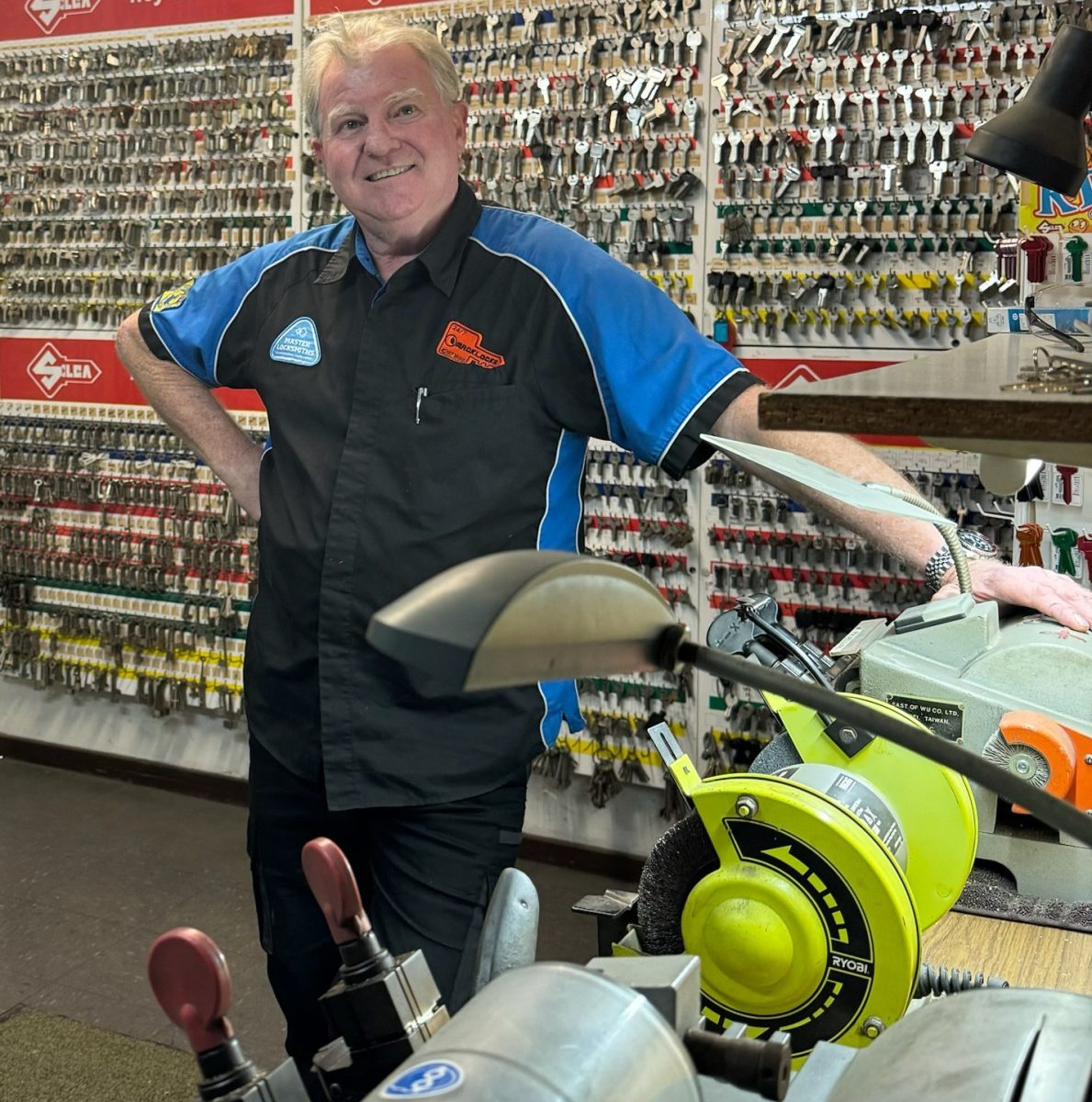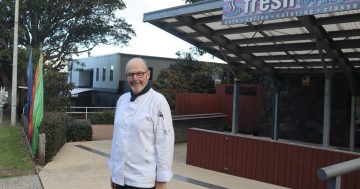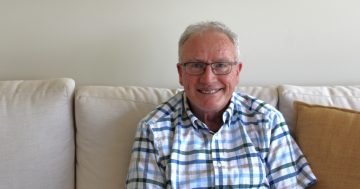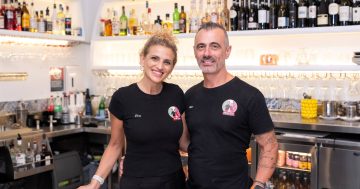
Peter Blackstock has been a master locksmith for almost 40 years. Photo: Supplied.
“So, can you pick a lock?”
Probably not the most common question to kick off an interview but in this case the answer was ‘yes’.
Speaking is Peter Blackstock, who goes on to explain how it’s done, which isn’t lining up with any of the images you see in movies.
But it’s safe to say that after nearly 40 years as a master locksmith, who runs his own business at Warilla, Peter’s version is probably closer to the truth.
Judging by his busy weekly schedule, locksmithing is one of the 20th century professions that has not buckled under the onslaught of technology.
For Peter, now 59, it all started when he threw in his job as a fitter and turner at BHP Steelworks when he was in his early 20s.
“I wanted something different, where you don’t go home soaked in grease, so I asked around and a friend told me to talk to a woman called Lyn Mott who ran a locksmith business in Wollongong,” says Peter.
“The job interview was at a local pub where she drank, and I got the job on the spot, probably due to my experience on the tools as a fitter and turner.”
Like many people, Peter had little idea about what locksmiths do beyond cutting keys at shopping centres, but he soon learned the work involved skill sets and security requirements at a level where police require all locksmiths to have fingerprints recorded on police data banks.
It makes sense, says Peter, who cuts master keys for many corporates and police stations in the Illawarra, as well as for the Department of Housing when new tenants arrive.
“On the flip side, we deal with situations all the time when we have to ensure the people who we deal with are who they claim to be,” he says.
He is referring to the two to three callouts per week involving people who have locked themselves out of their homes.
“Often, it’s something as simple as, ‘The wind blew the door shut when I was collecting the mail’, but we have to ask for documented evidence from those people to ensure they are genuine,” says Peter.
“It’s difficult for them to always have that documentation when locked out so sometimes we act on trust.”
He says every day presents a different challenge which keeps the job interesting.
“I once even had to climb through a window to get to a lady who got trapped in a second-storey bathroom when the lock failed,” he recalls.
Like many jobs, locksmithing has a sad side.
“Often we are called out to gain entry into houses and units after people have died,” says Peter.
“That is always a sad, bad day for us.”
Peter acknowledges that technology is having an impact on the industry, but given the variety of work covered by locksmithing, it has not overly impacted on his business.
“Sure, some people are choosing to go with digital keypads, but they do need to check with their insurance companies to ensure they are covered in the event of a burglary – some don’t,” he says.
“Unlike deadlocks, the digital keypads are not keyed from the inside so intruders can just walk straight out the front door with their valuables.”
A more significant threat is the many new cars that have computerised locking systems.
“They still need a locksmith when things go wrong but it involves computer coding so I leave that work to the young ones,” says Peter.
Going back to the lock picking – one of his finest moments, which made its way into the local paper as a column quip, was on his wedding day in 1997 when the wedding party stopped at a service station to use the public toilets.
The three-year-old page boy hopped out too, but managed to lock the car.
Peter was seen “sidling’’ to the car door, and seconds later the door miraculously sprang open.


















